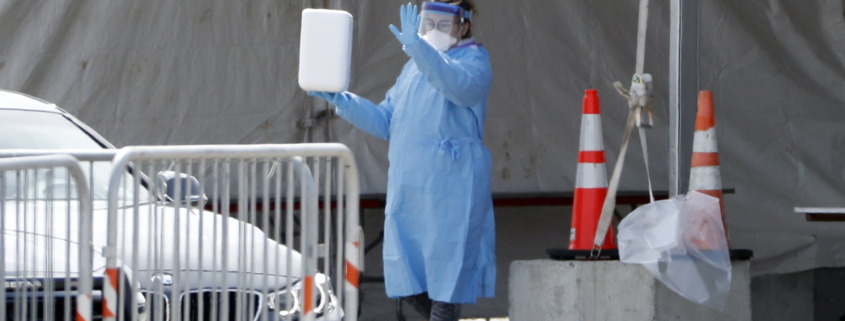We need to put political views on the back burner and focus on doing what is necessary to help ourselves and others make it through this pandemic
Something extraordinary happened in the Middle East. In the wake of this global pandemic, Palestinians and Israelis put aside their differences and pledged to work together to stop the spread of COVID-19.
It should be a lesson to all of us: if these two adversaries can find a way to stop fighting, why can’t Americans?
Crises have a way of bringing us together but, unfortunately, partisanship is alive and well in the United States. A recent Reuters poll found that four in 10 Democrats view the pandemic as a threat while just two in 10 Republicans agree. Meanwhile, a Quinnipiac poll found similarly sharp divides when it came to the president’s coronavirus response.
To be sure, collaboration hasn’t been nonexistent. House Democrats and Republicans came together to pass a financial aid bill that awaits consideration in the Senate and there appears to be bipartisan support for sending stimulus money to Americans. But too many pundits and politicians are still using COVID-19 as an excuse to push partisan politics.
Legitimate concerns have been raised about how the Trump administration has handled the response to COVID-19 but telling the president that he needs to “shut up” only serves to inflame an already tense situation. Likewise, calling Vice President Joe Biden a “rotting corpse” is the kind of juvenile name-calling that has no place in government during a time of national crisis.
Shared humanity is what brought Palestinians and Israelis together and it can do the same for us. We lead an organization, Common Ground Committee, dedicated to highlighting what brings us together. Here are attributes Americans — from the halls of Congress to newsrooms to the streets of our cities and towns — should adopt in discussions about COVID-19 to focus our efforts on getting through this challenge.
Use and accept facts
According to the World Health Organization, there is about 142 times more disinformation about COVID-19 than there is legitimate information. Much of that comes from erroneous social media posts, but it’s also a reminder that we need to leave our media echo chambers.
According to Pew, Republicans were more likely to trust Fox News than any other media source, while Democrats gravitated toward CNN and MSNBC. At a recent Common Ground Committee forum, we brought together Fox News’ Chris Wallace and The New York Times’ Maggie Haberman. One of the most important points they agreed on was the need to improve our media literacy.
Talking it out: Learning to discuss complicated issues ahead of the election.
USA Today wants to hear from you: Be a part of the solution to finding solutions. Tell us here.
As information about COVID-19 spreads, consider the source of any information you share. Make sure it is sourced from a recognized authority such as WHO rather than someone with an agenda.
Commit to seek agreement, solutions
In times like these, we must shelve ideological battles and focus on solving the problem. Approach discussions about coronavirus with an objective of trying to agree on how we can best solve the crisis and make the mental commitment not to push a partisan agenda. That’s what past members of the Trump and Obama administrations did when they came together to call for the government to increase the federal Medicaid matching rate.
We’re not going to agree on everything. Nor should we. But political objectives should not be a barrier to obtaining and sharing accurate information, and productive debate, especially when Americans are looking to their leaders for stability and solutions.
Identify and set aside personal biases
We all carry personal beliefs, biases and opinions. As conversations about the outbreak continue, be aware of yours. Be willing to test them against new information and recognize when they may be closing your thoughts to other views. Most important, be respectful of people’s fears and concerns, even if you don’t agree they are merited.
If you have a friend or family member concerned by the administration’s response to COVID-19 your first instinct should not be to lash out because you agree with the president. Instead, take the time to understand why they are concerned. You may not ultimately agree, but you will both better understand each other’s perspectives and thereby help each other make better decisions in this uncertain environment.
If two peoples who have a history as violent as Palestinians and Israelis can find a way to put their differences aside, there is no reason we can’t do the same. Agreeing on bipartisan legislation was a great first step. Now we need to put political views and objectives on the backburner and focus on doing what is necessary to help ourselves and others successfully make it through this pandemic.
We all can do this. Let’s make a pledge, across the political spectrum, to drop political agendas and work together.



